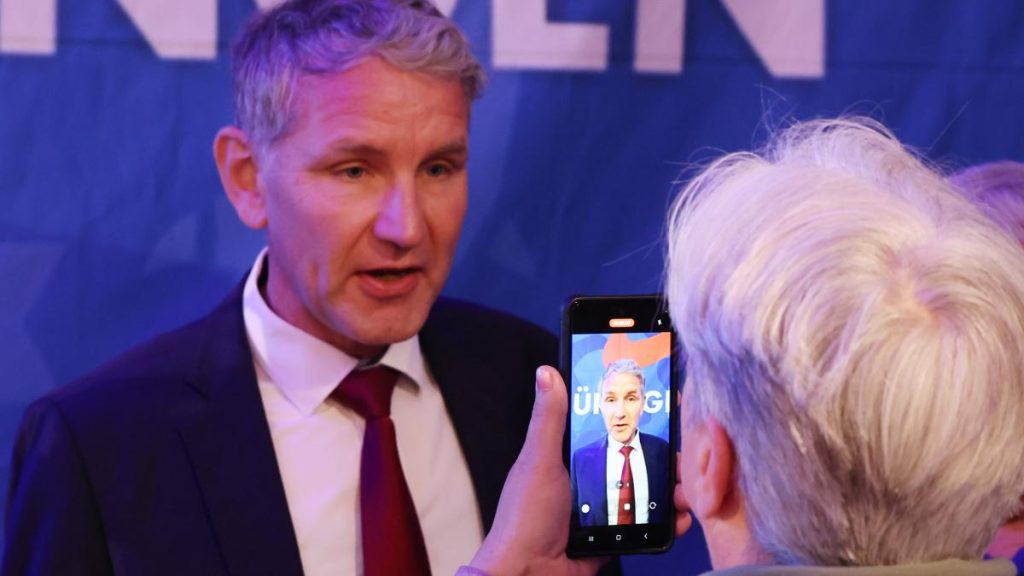The Thuringian AfD has approved its election program for the upcoming state election in September. The 24-point document includes demands for a change in asylum policy, a reform of public broadcasting, and the abolition of the State Office for the Protection of the Constitution. The paper was unanimously accepted by the nearly 230 members at the AfD party conference in Pfiffelbach on Saturday, with one abstention. State chairman Björn Höcke announced that the AfD would launch a major deportation initiative in 2025 once in government. The program also calls for asylum rights exclusively for those politically persecuted and a reduction in the number of state parliamentarians from 88 to 62. The AfD also plans to cancel media state contracts, significantly reduce the number of public broadcasting institutions, and eliminate the broadcasting contribution.
Since March 2021, the Thuringian AfD has been classified as securely right-wing extremist and is under observation by the State Office for the Protection of the Constitution. Thuringia will elect a new state parliament on September 1. According to recent polls, government formation could be difficult once again. The AfD is currently leading with around 30 percent support.
The AfD’s election program has drawn attention for its controversial proposals, including a strict immigration policy and changes to the media landscape in Thuringia. The party’s plan to initiate a large-scale deportation effort in 2025 has sparked debate among politicians and the public. The AfD’s goal of reducing the number of state parliamentarians and cancelling media state contracts has also raised concerns about the future of public broadcasting in the state.
Critics have accused the Thuringian AfD of promoting a far-right agenda and infringing on democratic values with its election program. The party’s classification as right-wing extremist by the State Office for the Protection of the Constitution has further fueled these criticisms. With the AfD currently leading in the polls, concerns about the party’s influence on state policies and government formation have grown among opponents.
The upcoming state election in Thuringia is expected to be closely watched as the AfD’s popularity continues to rise. The party’s controversial election program and its proposals for immigration, media, and government reform will play a significant role in shaping the political landscape in the state. As the election date approaches, debates over the AfD’s policies and their potential impact on Thuringia’s future are likely to intensify.















